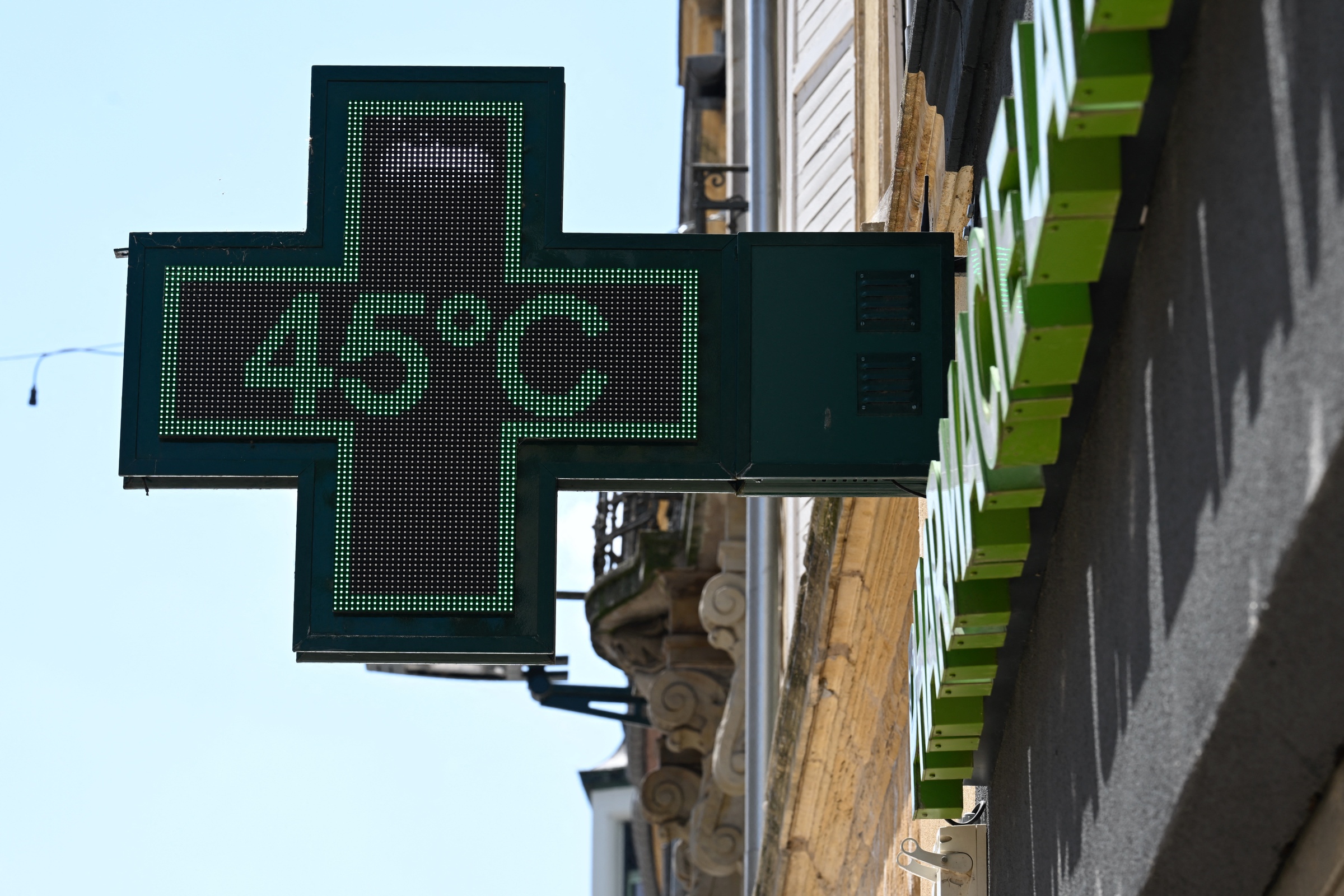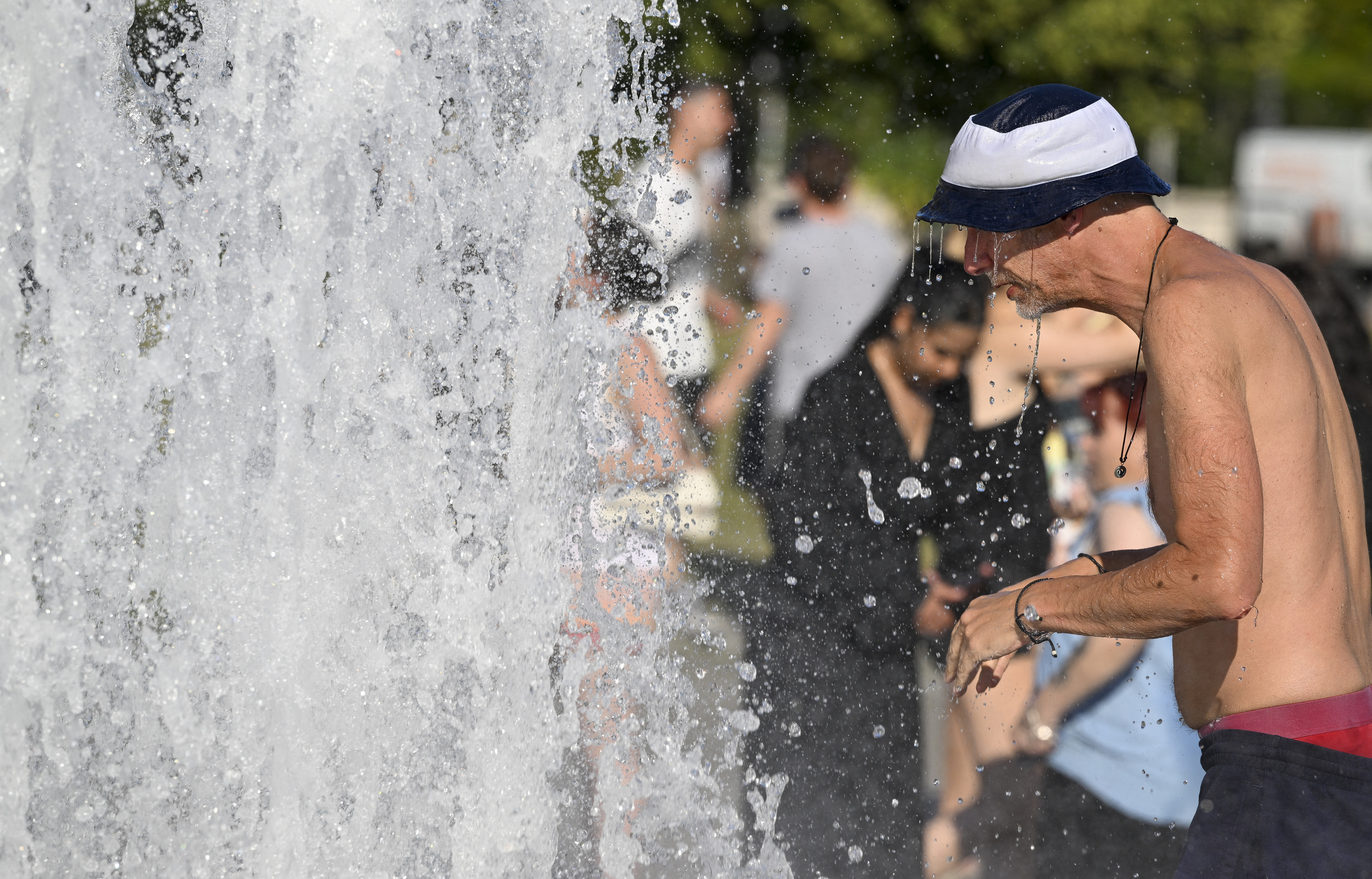Western Europe experienced extreme heat waves in June and July. More than 1,000 French schools partially or completely closed due to a lack of cooling systems, while air conditioner sales surged in many countries across the region.
Many far-right politicians were quick to speak out, claiming that Western European governments had left the region without air conditioning during the heat waves.
"It's crazy that families have to stop working day after day because schools can't accommodate their children, while telling them to go to air-conditioned cinemas," said Marine Le Pen, leader of France's far-right National Rally (RN) party.
Given the urgent heat situation, Le Pen proposed a large-scale air conditioning installation campaign in schools, hospitals, and other public facilities.
"Public services cannot operate due to the lack of air conditioning. Dozens of other countries in the world do not experience this situation. The government seems to have not yet caught up with reality," she said.
 |
A sign displays the outdoor temperature in Thionville, northeastern France on 2/7. Photo: AFP |
A sign displays the outdoor temperature in Thionville, northeastern France on 2/7. Photo: AFP
However, the proposal met with strong opposition from French government officials. Energy Minister Agnes Pannier-Runacher argued that large-scale air conditioning installation would increase emissions, making the outside air hotter and worsening the heat wave.
"It's a bad solution. We should only install air conditioning for vulnerable people so they can rest comfortably, but it shouldn't be abused everywhere," she said.
Extreme heat is the leading danger Europe faces due to climate change, causing the once temperate continent to frequently face scorching hot days.
Faced with this reality, many air conditioning supporters cite the US as a model, a country that has long considered air conditioning an essential appliance. "The US has invested billions of USD to modernize air conditioning systems in schools, while many hospitals are also equipped with air conditioning," French conservative lawmakers wrote in a draft proposal for air conditioning installation this month.
However, the prospect of "Americanizing" air conditioning systems worries many Europeans, not only because of health concerns but also due to deeper anxieties.
French media warned that maintaining indoor temperatures 9 degrees Celsius lower than outside could lead to severe "heat shock," with symptoms ranging from nausea and loss of consciousness to the risk of respiratory arrest.
Others worry about the risk of respiratory infections from staying in air-conditioned rooms for too long. Meanwhile, climate-conscious Europeans are reluctant to use more electricity for air conditioning, as this means generating more greenhouse gas emissions.
Officials in other Western European countries like Germany expressed concern about the potential for increased inequality, as the poor are the most vulnerable during heat waves.
German Environment Minister Carsten Schneider said, "Heat makes social imbalances particularly evident. Poor people are less able to protect themselves from the effects of heat, while wealthier people can easily buy air conditioners or enjoy cool gardens."
But these concerns cannot deter air conditioning proponents as heat waves become increasingly severe. Europe is the fastest-warming continent globally, according to the World Meteorological Organization. Last June was recorded by the European Union's Copernicus Climate Change Service (C3S) as the hottest June in Western European history.
Experts argue that air conditioning should be installed to prevent thousands of deaths from extreme heat. Many people from London to Madrid increasingly agree they don't want to endure more heat waves in a house without air conditioning.
"I feel like it's getting hotter every year. Maybe because I wasn't here last year, but it's too hot now," said Sophie Berto, an analyst who has lived in Paris for 10 years, adding that she had to buy an air conditioner.
 |
People seek relief at public fountains as temperatures in Berlin, Germany reach 40 degrees Celsius on 2/7. Photo: AFP |
People seek relief at public fountains as temperatures in Berlin, Germany reach 40 degrees Celsius on 2/7. Photo: AFP
Some environmentalists and scientific researchers believe Europe can cool the atmosphere without large-scale air conditioning installations. They suggest planting more trees in buildings and streets, designing ventilation systems, and installing sunshades.
In London, construction companies are required to consider cooling designs before installing air conditioning in newly built buildings, but this regulation has faced criticism.
Andrew Bowie, a member of the Conservative Party, this month called on Mayor Sadiq Khan to end the "absurd restrictions on air conditioning installation." "We must get out of the narrow mindset of reducing energy consumption," he said.
A spokesperson for Khan said, "The mayor does not prohibit air conditioning installation," but recommends developers design other forms of indoor ventilation to help reduce energy costs for many families.
French officials have considered solutions, including expanding geothermal heating and cooling systems to avoid the need for traditional air conditioning. However, this measure requires a large initial investment and may be prohibited in older buildings.
Finding cooling solutions is not only a need for people in their daily lives but also an important issue for the entire economy. Chateau Pontet-Canet, a wine producer near Bordeaux in France, had to invest in an air conditioning system to cool the winery, cellars, and the company's offices.
"Wine is our business, and we don't want what we produce to turn into vinegar because of the heat. So we need air conditioning," said Mathieu Bessonnet, technical director of Chateau Pontet-Canet.
Thuy Lam (According to WSJ, Politico)












